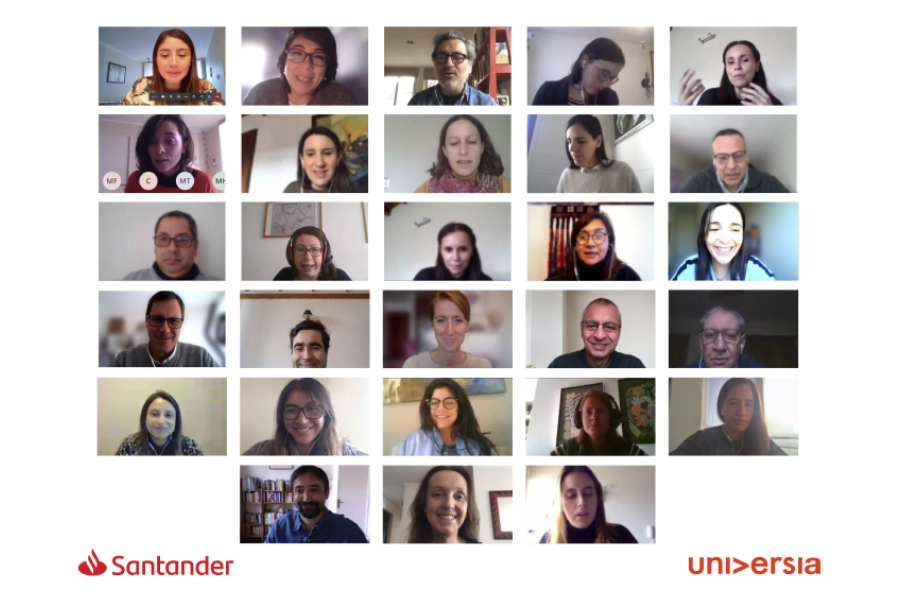|
Although there may be uncertainty regarding the indicators associated with the internationalization both in international rankings and in issues of accreditation, the universities consider it vital in terms of outreach, research, undergraduate and graduate studies. For this reason, several International Relations Managers met online to address the different challenges in this field. |
One of the strategic pillars of Santander Universidades is the promotion of international mobility as part of their program, and as a support in the field of higher education. At the same time, the Chilean university portal Universia Chile, which the university Universidad de La Frontera (UFRO) is associated with for more than a decade, has become an important meeting point for more than 60 associated institutions. Both entities organize regular meetings with university representatives, and on this occasion, they invited the International Relations Managers to a conversation about the issues higher education is facing right now in its diverse fields of activity. Thus, questions about the different experiences within the pandemic and about possible opportunities have been addressed. The director of the International Affairs Office at UFRO, Dr. Lorena Vieli, explains that the realities among the Chilean universities are not that different, because “we all had to respond to a situation of global crisis, where the work started to depend on the use of technologies for being able to continue with our activities. But this has also opened new possibilities with regard to the international and intercultural experience of our students and teachers; so we started for example with some kind of virtual mobility and to incorporate teaching methods with international virtual collaboration”. In fact, according to a report issued by Universia, the pandemic brought an immediate transition from face-to-face to virtual mobility, with both positive and negative consequences. One of the most interesting aspects is the democratization of international education, because more students have access to it, since they do not have to leave their homes and can access it from their computers or electronic devices. However, the students prefer the face-to-face mobility, since a stay abroad is more like a life experience for them, rather than a purely academic one. Another essential fact, according to the participants in that conversation, is that the current context has opened a space for new Collaborative Online International Learning (COIL) courses, which can be implemented without financial barriers. Some of the universities already offer this kind of courses, while others are still working on their implementation. One of the difficulties mentioned by the participants is the language gap that still exists among the students. Most of them do not have the English proficiency to apply to English-speaking universities, what limits them to choose universities in Spanish-speaking countries. In this respect, scholarships for language courses have become an essential measure in the development of foreign language skills and – this is something the participants in this conversation strongly agreed on – for a better academic performance. The last topic of the conversation was an evaluation of the stays abroad of the students, which had to be interrupted or cancelled due to the effects of the pandemic. In most cases, the units in charge of International Affairs and Student Welfare started to work together to help the students to return home, also in accordance with the arrangements in the respective country. Written and translated by: UFRO Communications Office
|
